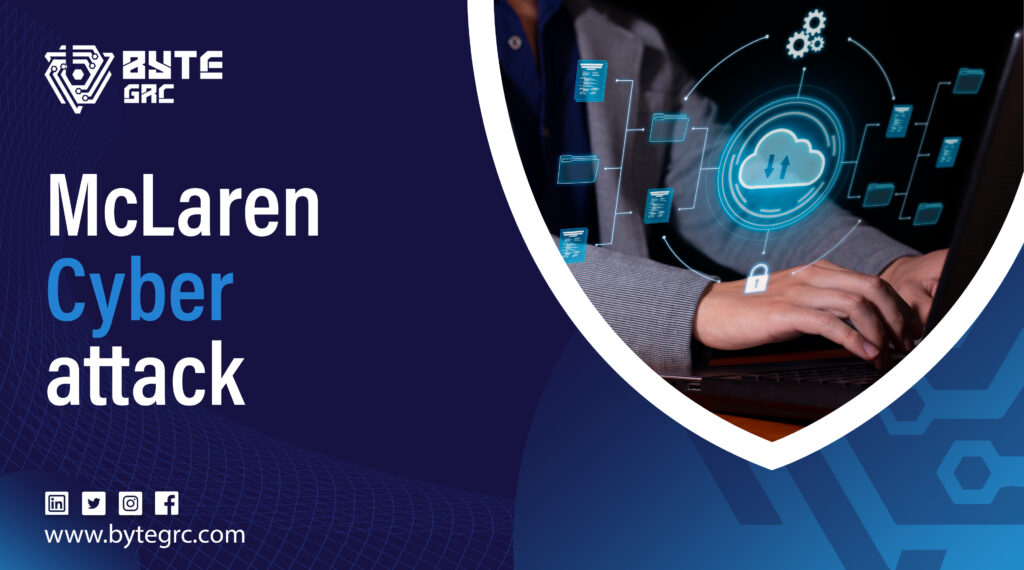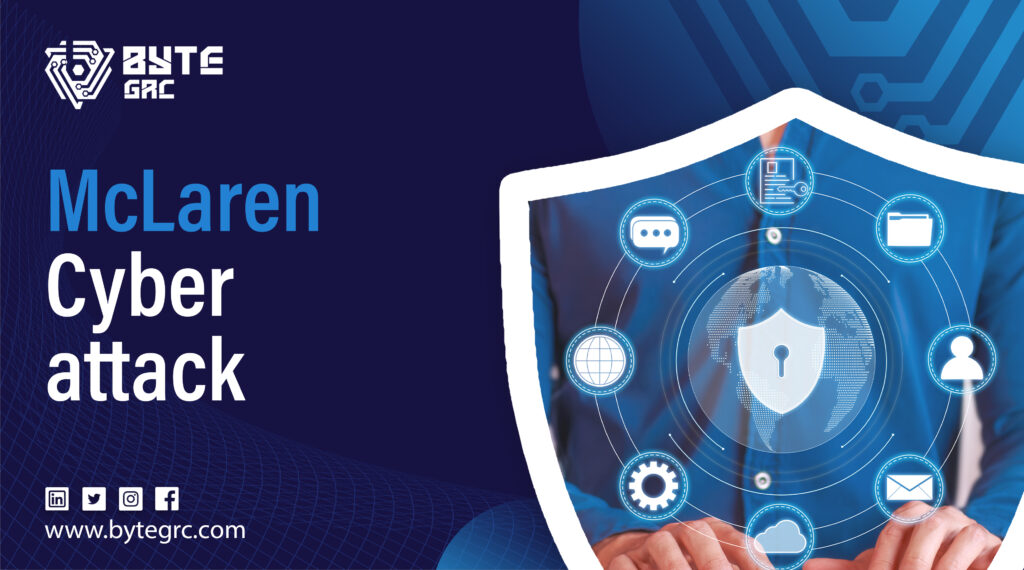
Table of Contents
Everything to Know About the McLaren Cyberattack & Its Aftermath
In August 2024, McLaren Health Care Corporation faced a serious cyberattack that disrupted hospital operations, delayed treatments, and put personal health records at risk. This was the second major security issue the healthcare system faced in less than a year. The McLaren cyber attack reminded everyone how vulnerable hospitals and clinics are to digital crimes in today’s Information Age.
Cybercrime, especially ransomware, has become a growing issue in the health care industry. Medical services are essential, and delays can cost lives. With the rise of online threats, it’s more important than ever for hospitals to strengthen their computer security and protect patient information.
This blog explains what happened during the McLaren cyberattack, how it affected public services, and what lessons the healthcare world can learn. From delayed surgeries to concerns over personal data, this attack had far-reaching effects.
The McLaren Cyberattack: What Happened?
Have an overview of what really happened at the McLaren cyber attack:
Attack Overview
On August 5, 2024, McLaren’s systems were hit by a ransomware attack that caused widespread disruption across 13 hospitals, cancer centers like Karmanos Cancer Institute, and many outpatient clinics. The hacking group INC Ransom, known for double extortion tactics, claimed responsibility. They not only lock systems but also threaten to leak private information unless paid.
This was not McLaren’s first run-in with cybercrime. In 2023, a group called BlackCat (also known as AlphV) exposed 2.2 million patient records in a similar breach. Both attacks targeted the same weak spots in McLaren’s information technology, revealing ongoing issues in their digital defenses.
Immediate Response
McLaren acted quickly by switching to manual operations. Staff used pen-and-paper records, some surgeries were rescheduled, and certain emergency departments had to divert ambulances. Patients were told to bring printed medical records, current medication lists, and lab results if they had appointments during the outage.
These stop-gap steps helped keep things running, but they also showed how deeply hospitals rely on digital tools.
Impact on Patients & Healthcare Operations
Here is how the McLaren cyberattack impacts patient and healthcare operations:
Clinical Disruptions
The attack caused major problems in daily medical care. Some radiation therapy treatments for cancer were delayed, putting patient health at risk. Elective surgeries were pushed back, and some emergency cases had to be transferred to other hospitals due to broken systems.
While most emergency services stayed open, delays and diversions added pressure to doctors and nurses already working under stress.
Patient Data Risks
It is still unclear how much personal data was stolen in the McLaren cyber attack. However, Michigan Attorney General Dana Nessel warned people to stay alert for identity theft and fraud. In past breaches like the 2023 one, attackers got access to Social Security numbers, health insurance info, and detailed medical records — a serious privacy risk.
Patients were urged to freeze their credit with agencies like TransUnion, Experian, and Equifax, watch their Explanation of Benefits (EOBs) for strange charges, and update passwords to online patient portals.
Staff Challenges
This crisis also impacted McLaren’s healthcare workers. Many employees were forced to take paid time off or even apply for unemployment due to halted systems. Still, many frontline staff continued to care for patients using backup tools and systems. Their efforts were praised by both the public and hospital leaders.
Recovery Efforts & Timeline
Stages of recovery from the McLaren cyberattack include:
IT Restoration
By late August, McLaren restored its computer systems — earlier than expected. Staff then began the huge task of moving handwritten records into electronic health records (EHRs) to get back on track with treatments and billing.
Ongoing Investigations
Experts from the FBI, U.S. Department of Health and Human Services, and McLaren’s own team started a forensic investigation. They aimed to discover if protected health information was stolen and if federal laws like HIPAA were broken. Possible data breach notices may follow.
This process also involves checking how hackers got in and what steps can stop it from happening again.

Broader Implications for Healthcare Cybersecurity
The healthcare sector faces cybercriminal threats, with ransomware attacks increasing 93% between 2018-2022. Patient data breaches pose financial risks, here are necessitating policy reform and proactive measures:
Industry-Wide Vulnerabilities
Health care has become a favorite target for cyberattacks. Between 2018 and 2022, there was a 93% jump in ransomware cases across hospitals. Why? Because health systems are part of critical infrastructure and handle sensitive data. Hackers know hospitals will pay to regain access quickly.
The average cost of a data breach in healthcare now exceeds $11 million, making this not only a security problem but also a major financial risk.
Policy & Prevention Gaps
Michigan doesn’t yet require mandatory reporting of all cyberattacks, which leaves patients in the dark. Experts argue that stronger data laws, better cyberwarfare defenses, and improved regulation of technologies are needed to protect the public.
The attack has sparked calls for federal rules that demand better computer law enforcement, more oversight, and resources for hospitals to update their systems.
Expert Recommendations
To stop future threats, cybersecurity experts suggest:
- Using multi-factor authentication for all logins.
- Hosting staff training sessions on spotting phishing emails and other malware tricks.
- Keeping offline backups of vital systems.
- Running tabletop exercises to practice emergency plans.
These steps can make the difference between a small issue and a total shutdown.
Lessons Learned & Patient Advice
The following are the lessons that should learn from the McLaren cyberattack:
For Healthcare Organizations
The McLaren cyber attack proved that hospitals need stronger defenses. IT teams must focus on secure communication, better information management, and security engineering. Leaders should build strong incident response plans and share what they learn with other hospitals and tech experts.
Working together across the public and private sectors can improve crime prevention and patient safety for everyone.
For Patients
Patients must take their own steps to protect their data:
- Check all insurance records and credit card statements regularly.
- Freeze credit with the big credit bureaus if needed.
- Change passwords often and use strong, unique codes.
- Keep printed copies of personal health records in case of digital shutdowns.
Staying alert is key in today’s fast-moving digital world.
Conclusion
The McLaren cyber attack was a major wake-up call for the healthcare industry. It showed how real the threats of cybercrime, cyberspace abuse, and digital media leaks are in medicine. From delayed treatments to patient privacy risks, the impact was wide-reaching.
Health systems must now focus on information governance, better technology, and data protection. Policymakers, IT leaders, and medical professionals must work together to protect patients and services.
For hospitals and clinics looking for a smart solution to improve their security posture, Byte GRC offers tools to help manage risks, follow rules, and prepare for future challenges.
FAQs
1: What is a ransomware attack?
It’s a type of cybercrime where hackers lock or steal digital files and demand money to return them.
2: Who attacked McLaren Health Care?
A group called INC Ransom, known for its cyber extortion tactics.
3: Was my data stolen in the McLaren cyber attack?
It’s still being investigated. Patients are advised to stay alert and watch for unusual activity in their accounts.
4: How can I protect my data?
Freeze your credit, update passwords, check your medical bills, and keep printed copies of key health info.
5: What is Byte GRC?
Byte GRC is a company that helps healthcare providers manage cyber risks and meet digital safety rules.

